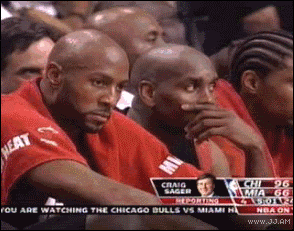lilfishi22 wrote:AtheJ415 wrote:Trading Brooks for whatever you can get should be priority 1
Would you do Brooks for CamJo straight up?
I know Cam misses more games and he's in a big time slump right now but I much prefer his shot profile over Brooks, he's a better rebounder and a better shooter overall.
If Green takes a step then consider it heavily. But like others pointed out right now our team is running on actual culture with the departure of KD and Beal. Do you risk upsetting that? How much better do we get with Johnson and is that worth the risk trading a tone setter in Brooks. My guess is the team bloody loves Dillon and even if you hate his 38%fg or whatever it is (and it's pretty bad lol) somebody still has to take shots. I don't necessarily mind trading for CamJo and then dumping the usage into Booker though. It's pretty sound meta strategy.
But also consider from Denver's side I don't think they have any use for Dillon. CamJo is probably a big part of their plans even with the struggles - they need that spacing around Jokic.
garrick wrote:bigfoot wrote:Sunsdeuce wrote:
Ok here's a bit of a cheeky thing: the answer of tank or not to tank when you have no picks is not actually a yes or no answer. The answer is that it doesn't actually matter whether you're tanking or not because, well, you don't have picks!
I disagree with 1 point of bigfoot's and that is targeting 3-4 years of college experience. I think this, depending on context, can be unwise. Youngest players coming into the league at 18-19, and we have our picks back in 6 years (after this season). That puts drafting 18-19 year olds at like 24-26 years old when we get our picks back, and then let's say 2-3 years of waiting for the picks to develop...so 26 to 29 years old when you're fighting in the playoffs
If you draft 22 year olds you're looking at 27-29 when you get your picks back and then 30-32 when you're in the playoffs again.
Also this might seem strange to hear but I'm not sure there is any data to support the idea that drafting experienced players is "safer" or they have less "bust" potential (as much as late 1sts, 2nds can even "bust"). As a rule of thumb young players of similar talent level to older players are just better prospects (because they have learned a similar amount of skills in a shorter amount of time). They tend to go earlier in the draft but even so they are often available late.
Well, whatever. If you just target best player available with every pick you have (a wise strategy especially in our position) the end result is going to look something like some older rookies and some younger rookies anyway










